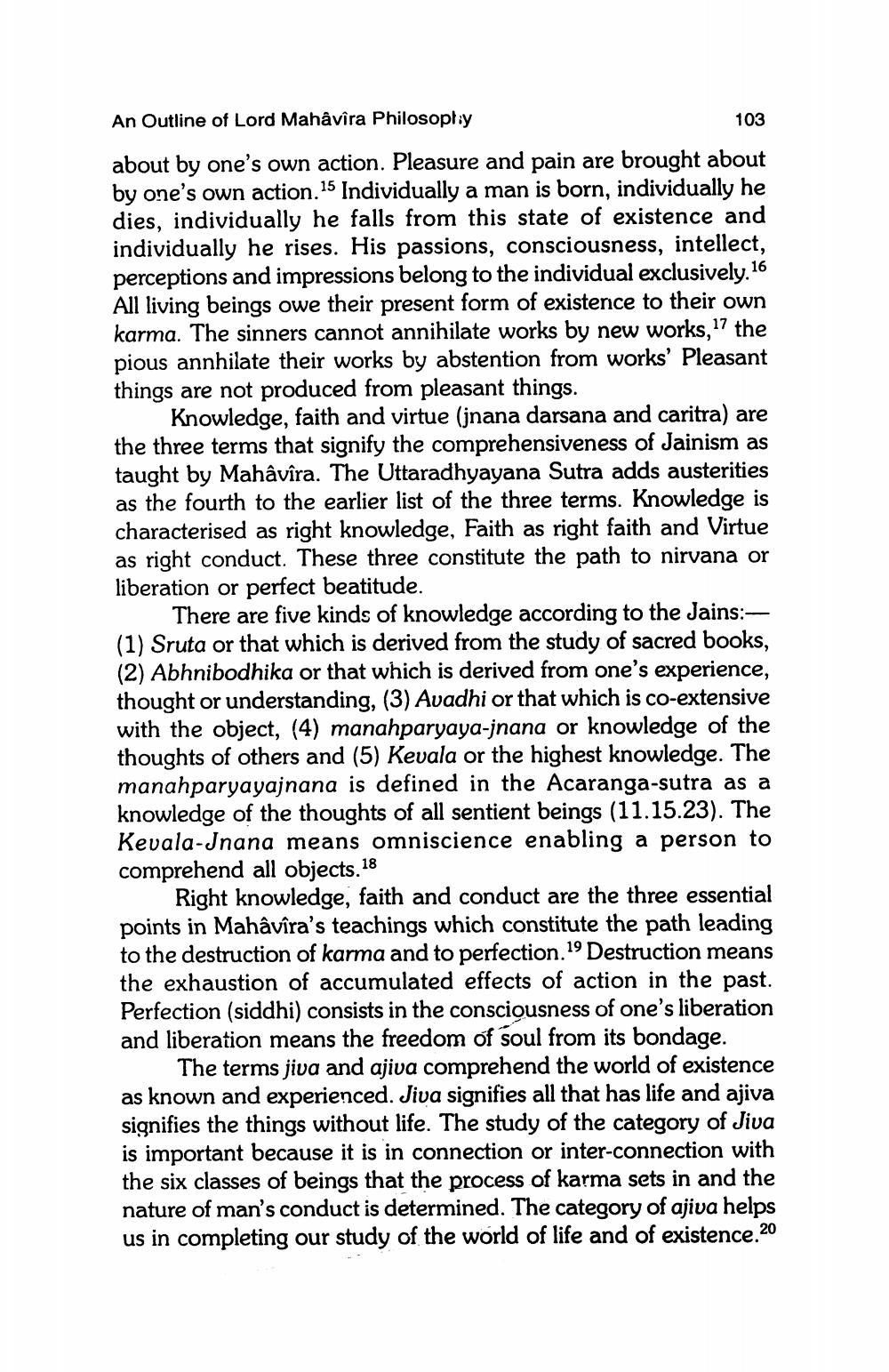________________
An Outline of Lord Mahavira Philosophy
103
nings.
about by one's own action. Pleasure and pain are brought about by one's own action. 15 Individually a man is born, individually he dies, individually he falls from this state of existence and individually he rises. His passions, consciousness, intellect, perceptions and impressions belong to the individual exclusively. 16 All living beings owe their present form of existence to their own karma. The sinners cannot annihilate works by new works, 17 the pious annhilate their works by abstention from works' Pleasant things are not produced from pleasant things.
Knowledge, faith and virtue (jnana darsana and caritra) are the three terms that signify the comprehensiveness of Jainism as taught by Mahâvîra. The Uttaradhyayana Sutra adds austerities as the fourth to the earlier list of the three terms. Knowledge is characterised as right knowledge, Faith as right faith and Virtue as right conduct. These three constitute the path to nirvana or liberation or perfect beatitude.
There are five kinds of knowledge according to the Jains:(1) Sruta or that which is derived from the study of sacred books, (2) Abhnibodhika or that which is derived from one's experience, thought or understanding, (3) Avadhi or that which is co-extensive with the object, (4) manahparyaya-jnana or knowledge of the thoughts of others and (5) Kevala or the highest knowledge. The manahparyayajnana is defined in the Acaranga-sutra as a knowledge of the thoughts of all sentient beings (11.15.23). The Kevala-Jnana means omniscience enabling a person to comprehend all objects. 18
Right knowledge, faith and conduct are the three essential points in Mahâvîra's teachings which constitute the path leading to the destruction of karma and to perfection. 19 Destruction means the exhaustion of accumulated effects of action in the past. Perfection (siddhi) consists in the consciousness of one's liberation and liberation means the freedom of soul from its bondage.
The terms jiva and ajiva comprehend the world of existence as known and experienced. Jiva signifies all that has life and ajiva signifies the things without life. The study of the category of Jiva is important because it is in connection or inter-connection with the six classes of beings that the process of karma sets in and the nature of man's conduct is determined. The category of ajiva helps us in completing our study of the world of life and of existence.20




